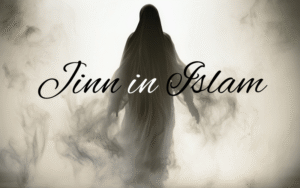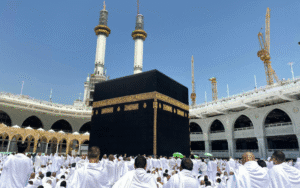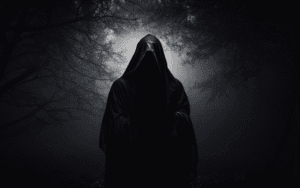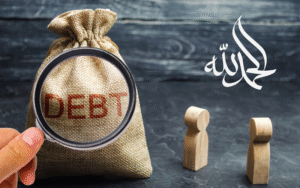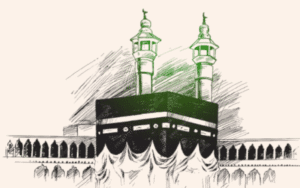Fortune Telling and the Reality of Astrology in Islam
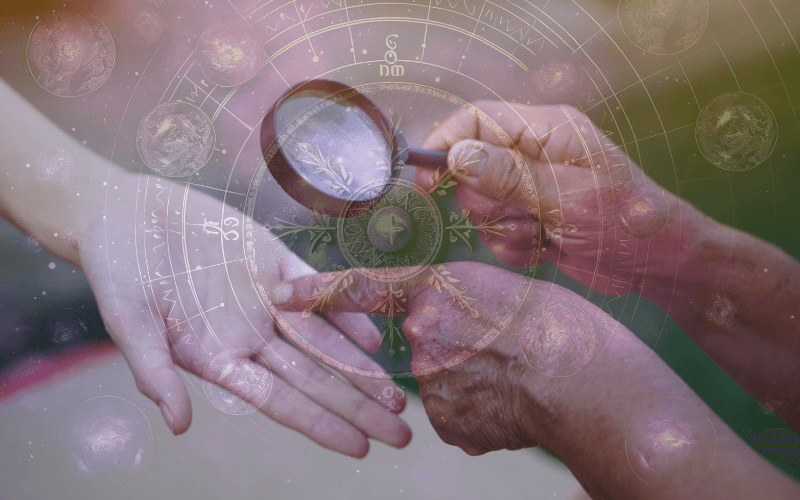
many of us might check horoscopes, some out of curiosity, others just for fun. But as Muslims, have we ever stopped to consider how serious this small act can be for our faith?
Humans have always harbored a deep curiosity about the future. This insatiable desire has fueled a massive global industry of fortune-telling and divination. People who claim to know the unseen and the future go by many names. These include soothsayers, diviners, astrologers, palm readers, and magicians. They claim to unveil the future through various means, such as reading tea leaves or interpreting lines on a palm. Many also use horoscopes and other practices related to astrology in Islam.
In this detailed article, we will explore these methods of fortune-telling. We will uncover the secrets behind them and discuss the clear and strict stance of Islam on these practices, Insha’Allah (God willing).
Claimants of Unseen Knowledge: Deception vs. Reality
We can generally divide those who claim to predict the future into two main categories.
1. Common Frauds
This group of fortune-tellers possesses no special knowledge or secret insights. They primarily rely on psychology and making broad, generalized statements. These statements could apply to almost anyone’s life. When one of their guesses happens to come true by chance, people remember it. They easily forget the numerous incorrect predictions. For instance, a study on predictions from famous psychics revealed a startling fact. Even the most “accurate” among them were only correct 24% of the time. The rest was pure guesswork.
2. Those Who Use Jinn
This second group is far more dangerous. Their practices are directly linked to Shirk—the greatest sin in Islam, which is associating partners with Allah. These individuals have contact with the world of the Jinn. They sometimes receive partially true information from the Jinn. As a result, their predictions can occasionally be accurate, which becomes a major fitnah (trial and temptation) for everyone.
The Hidden Secrets Behind Astrology in Islam and Divination
To truly understand the mystery behind fortune-telling, one must have a clear understanding of the Jinn. Allah created the Jinn from a smokeless flame of fire long before He created humanity.
Allah, the Most High, says:
وَالْجَاۤنَّ خَلَقْنٰهُ مِنْ قَبْلُ مِنْ نَّارِ السَّمُوْمِ
“And the jinn We created before from scorching fire.”
(Surah Al-Hijr, 15:27)
The Jinn coexist with us on this earth, but we call them “Jinn” because they are hidden from our sight. Like humans, they include believers (Muslims) and disbelievers (kafirs). We commonly refer to the disbelieving Jinn as devils, demons, or evil spirits. Their primary mission is to mislead humanity into the paths of Shirk and disbelief.
How Do Fortune Tellers Get Help from the Jinn?
1. The Qareen (The Companion Jinn): Allah assigns every human being a companion Jinn, known as a Qareen. Its purpose is to whisper evil suggestions. The Prophet Muhammad (ﷺ) said,
“There is none among you with whom is not an attached from the Jinn.” The Companions asked, “Even you, O Messenger of Allah?” He replied, “Even me, but Allah has helped me against him and he has submitted (become a Muslim), so he only commands me to do good.”
(Sahih Muslim, Hadis 2814)
When someone visits a fortune-teller, the seer’s Jinn contacts the person’s Qareen. Through this contact, it learns about their entire past. This is how soothsayers can often stun their clients. They accurately reveal details from the past, parents’ names, or secret childhood events—information obtained from the person’s own companion Jinn.
2. Stealing News from the Heavens: Before the prophethood of Muhammad (ﷺ), the Jinn could travel to the lower heavens. They would eavesdrop on the conversations of the angels to learn about future events. However, since the revelation of the Quran began, angels now heavily guard the heavens. If any Jinn attempts to steal information, a visible flame (shihab) strikes them. There is no support in the Quran on astrology having any power; instead, the Quran explains how the heavens are protected.
The Quran records this confession from the Jinn themselves:
وَأَنَّا لَمَسْنَا ٱلسَّمَآءَ فَوَجَدْنَـٰهَا مُلِئَتْ حَرَسًا شَدِيدًا وَشُهُبًا. وَأَنَّا كُنَّا نَقْعُد مِنْهَا مَقَـٰعِدَ لِلسَّمْعِ ۖ فَمَن يَسْتَمِعِ ٱلْـَٔانَ يَجِدْ لَهُۥ شِهَابًا رَّصَدًا
“And we have sought to reach the heaven; but found it filled with powerful guards and burning flames. And we used to sit therein in positions for hearing, but whoever listens now will find a burning flame lying in wait for him.”
(Surah Al-Jinn, 72:8-9)
3. One Truth Mixed with One Hundred Lies: Today, the Jinn can no longer steal news as they once did. However, they might snatch a single word of truth they overhear from the angels. They then return to their human allies. They mix that one piece of truth with one hundred lies.
Aisha (may Allah be pleased with her) reported that she asked the Messenger of Allah (ﷺ) about soothsayers. He replied,
“They are nothing.” She then mentioned that the soothsayers sometimes say things that come true. The Prophet (ﷺ) said:
“That is a word of truth that the Jinn snatches and cackles into the ear of his friend (the soothsayer) like the cackling of a hen, and they then mix more than one hundred lies with it.”
(Sahih al-Bukhari, Hadis 6213)
This explains why some of their predictions may seem accurate. However, the vast majority of what they say is false and fabricated.
The Strict Islamic Ruling on Astrology in Islam
For those asking, “is fortune telling haram?” the answer from Islam is an unequivocal yes. Any practice related to fortune-telling or astrology in Islam is strictly haram (forbidden). It is an act of Shirk that contradicts the core principles of Tawhid (the Oneness of Allah).
1. Visiting a Fortune Teller
Simply visiting a soothsayer and asking questions out of curiosity is a major sin. The Prophet Muhammad (ﷺ) said:
“Whoever goes to a fortune-teller and asks him about something, his prayer will not be accepted for forty days.”
(Sahih Muslim, Hadis 2230)
This does not mean the person should stop praying. They must still perform their daily prayers. However, they will receive no reward for them for forty days as a consequence of this grave sin.
2. Believing a Fortune Teller
To believe what a fortune-teller says is not just a sin; it is an act of Kufr (disbelief). This is because it involves attributing one of Allah’s unique attributes—knowledge of the unseen—to a created being. The stance of Islam on astrology is that it falls under this dangerous category. The Prophet (ﷺ) said:
“Whoever goes to a soothsayer or a fortune-teller and believes in what he says has disbelieved in what was revealed to Muhammad (ﷺ).”
(Sunan Abi Dawud, 3904)
Knowledge of the Ghayb (the unseen) belongs to Allah alone. Allah states in the Quran:
قُل لَّا يَعْلَمُ مَن فِى ٱلسَّمَـٰوَٰتِ وَٱلْأَرْضِ ٱلْغَيْبَ إِلَّا ٱللَّهُ
“Say, ‘None in the heavens and earth knows the unseen except Allah.'”
(Surah An-Naml, 27:65)
Therefore, anyone who believes a fortune-teller effectively denies this clear verse of the Quran. This ruling applies to all forms of divination, including any kind of Islamic horoscope, which is a forbidden concept, as well as palmistry and tarot cards.
Why is Fortune Telling Haram and Considered Shirk?
- It Contradicts Tawhid: Allah alone possesses knowledge of the unseen. To claim it or believe someone else has it is a form of Shirk.
- It Destroys Tawakkul (Trust in Allah): It makes people dependent on a charlatan’s words instead of putting their complete trust in Allah.
- It is Based on Deception: The entire practice is built on lies, guesswork, and distorted information from the Jinn.
- It Causes Social and Psychological Harm: It leads people to anxiety, despair, and poor decisions. It also spreads superstition and fraud throughout society.
Conclusion
Islam liberates humanity from all forms of superstition. It teaches us to rely solely on the One true God. Our destiny is not written in the stars, the lines of our palms, or a fortune-teller’s predictions; it rests in the hands of Allah Almighty. A Muslim’s duty is to strive and work hard according to Allah’s guidance. We must place our ultimate trust in Him for the results.
Abstaining from futile curiosity about the future and completely rejecting horoscopes and all forms of fortune-telling is a fundamental requirement of faith. For guidance in making decisions, Islam provides the beautiful practice of Salat al-Istikharah—a prayer for seeking guidance directly from Allah.
May Allah protect us all from this dangerous Shirk and superstition. May He grant us the ability to place our complete trust in Him alone. Ameen.
Frequently Asked Questions
Is it a sin to read horoscopes in Islam?
Reading horoscopes is strictly forbidden (haram) in Islam. It is considered a form of fortune-telling, which is an act of disbelief (Kufr) because it attributes knowledge of the unseen to something other than Allah alone.
Why is fortune-telling and astrology forbidden (haram) in Islam?
Fortune-telling is considered a major sin (Shirk) because it goes against the core Islamic principle of Tawhid, which is the Oneness of Allah. It falsely claims that someone other than Allah has knowledge of the unseen and future events. This practice also undermines a Muslim's trust (Tawakkul) in Allah.
How do fortune tellers get their information?
According to Islamic teachings, there are two types of fortune tellers: common frauds and those who use Jinn. The frauds rely on psychology and guesswork. The more dangerous ones may have contact with the Jinn, who steal information from a person's companion Jinn (Qareen) or mix a single word of truth they overhear from the heavens with a hundred lies.
Does Islam have its own form of astrology or horoscopes?
No. The concept of Islamic horoscopes is a forbidden practice. Islam teaches that knowledge of the unseen belongs to Allah alone. Rather than looking to stars or predictions, Muslims are encouraged to rely on Allah's guidance through prayer, especially Salat al-Istikharah, which is a prayer for seeking Allah's guidance in making decisions.
